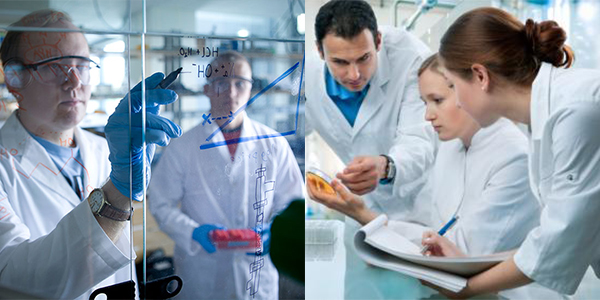Bio medical Engineering is a highly interdisciplinary and upcoming field of technology. Biomedical Engineering is concerned with the application of engineering & science methodologies, to the analysis of biological & physiological problems and to the delivery of health care. Biomedical engineering involves developing devices & procedures that solve medical and health-related problems by combining their knowledge of biology & medicine with engineering principles & practices.
Basically a Biomedical Engineering requires the analytical tools and broad physical knowledge of modern engineering and science, fundamental understanding of the biological or physiological system, and familiarity with recent technological breakthroughs. This is one of the most importantly developing and one of the most successful field a student could always opt for.
Also check : Aerospace Engineering
Eligibility of Bio Medical Engineering:
To appear in any of the entrance examination of undergraduate engineering courses, it becomes compulsory that the student must have passed the higher secondary school certificate examinations with the subjects specialized in Physics, Chemistry & Maths. However some courses demand the need of Biology also which may or may not be considered. The percentage requirements are conditional and they vary according to the university or college sometimes even depending on the state which you apply.
Duration:
Generally, any Bachelor of Engineering in India will span a duration of 4 full academic years which will include 8 semesters i.e; 2 semesters each year at the end of which an university theory cum practical examination for the respective subjects will be conducted. At the end of the final year a final project becomes compulsory, internships and mini projects which are to be done by the student vary from one university to the other. As far as the studying of subjects are concerned, it depends on the syllabus of each university that how much main subjects it allots per semester but a minimum of five subjects is expected to be written as theory examination conducted at the end of every semester.
Admission Process:
Option 1:
Merit seats- admission through Common Entrance Test conducted by respective state examination board/ college / university.
Option 2 :
Payment seats offered by the respective Colleges / Universities.
The above are the options through which an engineering admission could be done, you will have to select the most appropriate college/university in which you want to get into and then obtain the college details, relevant contact phone number and visit the institution for further enquiries.
Fees:
Each university has its own fees structure though, we would like to present to you a generalized scenario. Private universities will cost you around 150,000 to 300,000 (1.5 to 3 lakh) rupees per student per year . Public university on an average will cost between 75,000 to 150,000 rupees per student per year. Living expenses will cost you depending on the location of the university like in cities, it will cost you more and your style of living. Generally, this expenditure may cost you around Rs.1 lac excluding your tuition fees.
Also check : Career in Computer Science Engineering
Syllabus & Subjects Studied:
- Genetics.
- Microbiology.
- Bio-process Engineering.
- Biochemistry.
- Immunology.
- Protein Engineering.
- Chemical Reaction Engineering.
- Virology.
Best Colleges/Universities:
- The Central University of Karnataka (CUK), Gulbarga.
- IT-BHU.
- VIT University, Vellore.
- SRM University, Chennai.
- IIT Roorkee.
- Netaji Subhash Engineering College (NSEC), Kolkata.
- MIT, Manipal.
- Indian Institute of Technology, Bombay.
- AIIMS, Delhi:
Jobs after completing this course:
Sector / Industry.
- Development of Medicines.
- Development of Vaccines.
- Increase of productivity.
- Conservation and Animal Breeding.
- Improvement of Quality of Seeds.
- Insecticides and Fertilizers.
- Pharmaceutical Companies.
- Chemical Companies.
- Agriculture and allied industries.
- Bio-processing industries.
- Research laboratories.
Salary:
In private hospitals or health clinics, a fresher in biomedical engineering gets a salary between INR 15,000 and INR 25,000 a month. In companies that deal with medical equipment manufacturing, the biomedical professional starts his career with a salary range of INR 20,000 to INR 30,000 a month. The salary in a government sector ranges between INR 16,000 and INR 22,000 a month for a fresher. Salary in teaching and research organizations for a fresher ranges between INR 18,000 and INR 25,000 a month.
Careers after completing this course:
- Prostheses (artificial devices that replace missing body parts).
- Instrumentation.
- Medical Information Systems.
- Health Management.
- Care Delivery Systems.
Courses after completing this course:
- Masters Degree in Biomedical Engineering.





